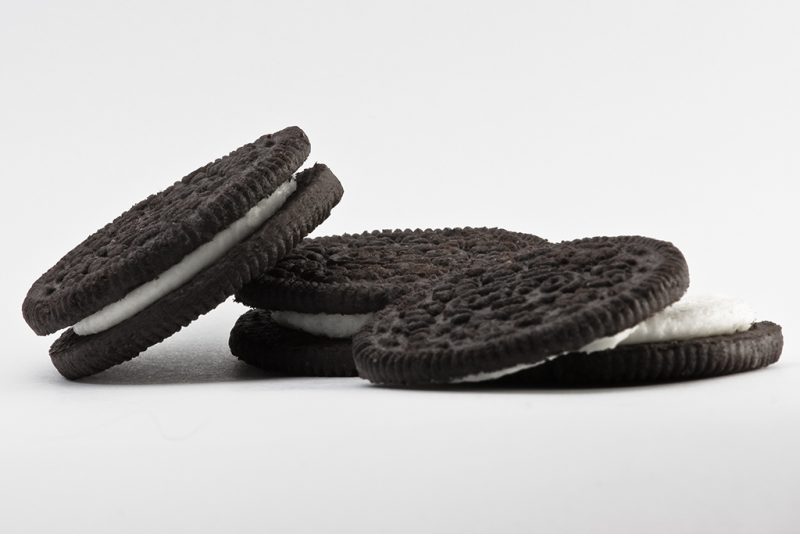2017 NCPH Annual Meeting topic proposals
20 June 2016 – Meghan Hillman

What better way to illustrate the idea of the “middle” than the classic Oreo sandwich cookie? Photo credit: Kelly Bailey
It’s that time again! Summer at the National Council on Public History means that the Program Committee has started the process of selecting content for our 2017 annual meeting. Two months ago we opened up our Call for Proposals for next year’s meeting in Indianapolis, Indiana, with the theme “The Middle: Where did we come from? Where are we going?”
This year, for the third year running, NCPH offered an optional early topic proposal deadline. Those who chose to submit a topic proposal by June 1 can now look forward to getting feedback from the NCPH community before the final proposal deadline on July 15. In the last couple of years we’ve found that the topic proposal deadline has helped connect people who are interested in similar ideas and themes early in the process, while there’s enough time to collaborate and make changes.
As NCPH’s numbers have grown, spots on the program have become increasingly competitive. Last year’s Joint NCPH/SHFG Program Committee accepted about 50% of the nearly 200 final proposals we received. By comparison, we received 40 early topic proposals. 70% of the 24 that were resubmitted as final proposals in July were accepted, and several others joined another successful proposal. While correlation does not necessarily equal causation, we like to think this means the topic proposal option is doing its job!
This year the Program Committee is hoping to hear from new voices and to see the conference theme, “The Middle,” explored from innovative angles. While the committee will continue to accept individual paper submissions, we hope that presenters will be encouraged instead to pursue exciting collaborations and consider more engaging formats. The topic proposal is an extra step that helps like-minded people join forces and submit strong, cohesive final proposals that reflect a diversity of experiences and perspectives. We think that is especially important in a field like public history.
I didn’t submit a topic proposal – what’s this got to do with me?
The topic proposal process works best if you, the NCPH community, tell topic proposal submitters what you want to see next year in Indianapolis. This is a great way to help shape the Program from its earliest stages. Visit the Topic Proposal page to view the 33 topic proposals we received this year (you can click on “View Proposals” in the left-hand sidebar to open the full list). You’ll see that each proposal includes a working title, abstract, description of the kind of assistance the proposer is looking for, and the proposer’s contact information. Proposals are tagged with related key words to help you find the ones that are most relevant to your interests and expertise.
If you have a direct offer of assistance, sensitive criticism, or wish to share contact information for other people the proposer might reach out to, please contact the proposer directly via email. If you have general ideas or feedback to share, leave a comment at the end of the individual proposal’s page. We ask that you submit your feedback by Sunday, July 3.
After receiving feedback, the original proposer can choose to flesh out the proposal and submit the completed version using the full session or workshop proposal form online by July 15. All full proposals will be reviewed by the NCPH Program Committee, and proposers will be notified by September 15 if they have been accepted onto the Program for Indianapolis.
Advice for commenters and proposers
As you explore the topic proposals, you’ll see that proposers are interested in a wide variety of topics—from historic preservation in the Midwest and oral history as a form of service-learning to building more inclusive public history graduate programs. The proposers represent the range of people engaged in public history, including practitioners, students, and faculty, including many who are new to the field or to our conference.
Commenters and proposers should keep the following in mind:
- Try to respond to what the proposers are looking for. Some are looking for help focusing their topics while others are looking for advice or co-presenters.
- We hope that proposers and commenters will think about the best way to convey information and provoke engagement. Keep in mind NCPH’s advice to conference presenters to avoid “panels of talking heads and over-reliance on PowerPoint presentations.”
- We are looking for sessions that raise new questions, highlight problematic issues, place projects in a larger context, and–as our 2017 theme, “The Middle: Where did we come from? Where are we going?” suggests–take stock of the field. Try to avoid the “show and tell” approach and don’t be afraid to discuss the implications of your work (success and failures) for public history.
- Remember that the Program Committee ultimately will only be able to accept a limited number of sessions, so collaboration is the key to get as much diversity in the program as possible.
Peter Liebhold, 2017 Annual Meeting Co-Chair
John Sprinkle, 2017 Annual Meeting Co-Chair
Meghan Hillman, NCPH Program Assistant



